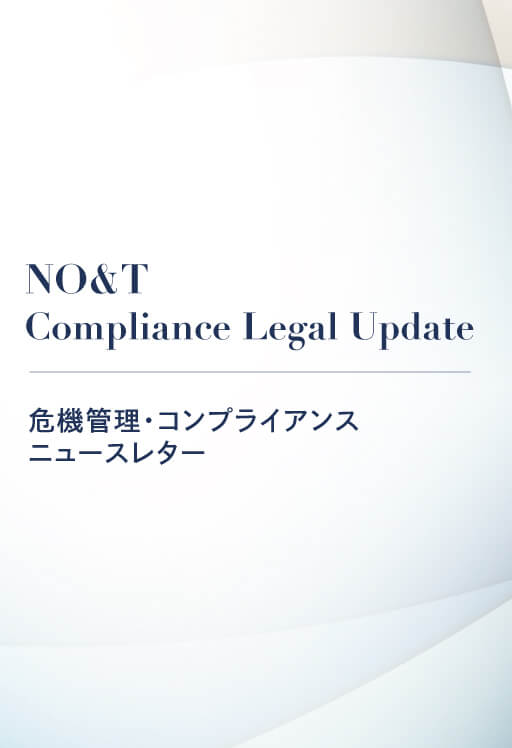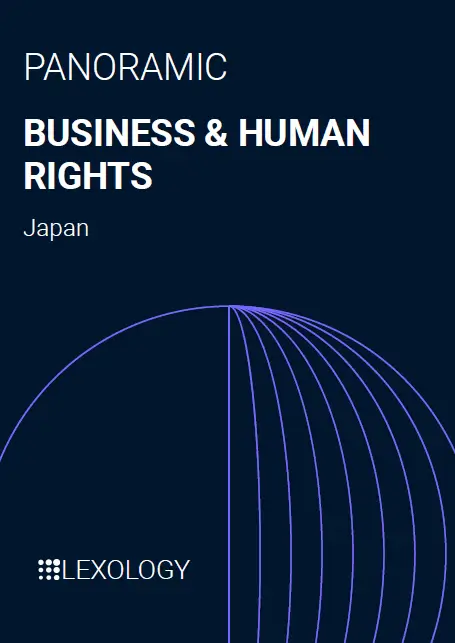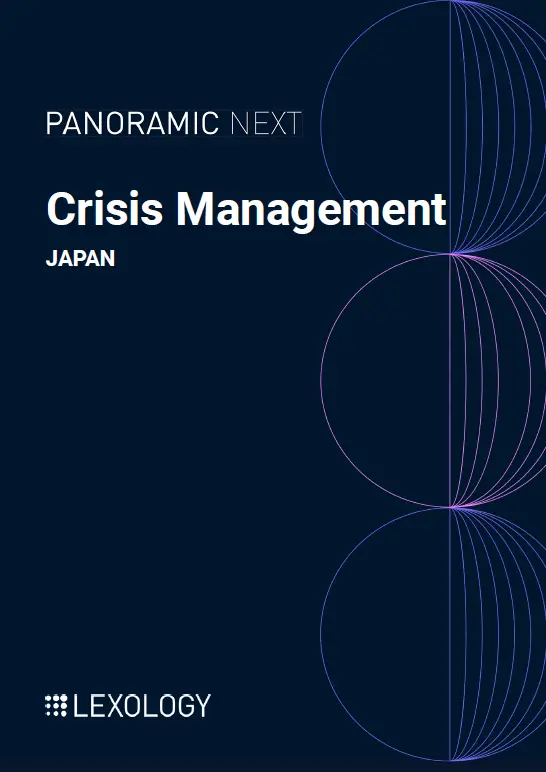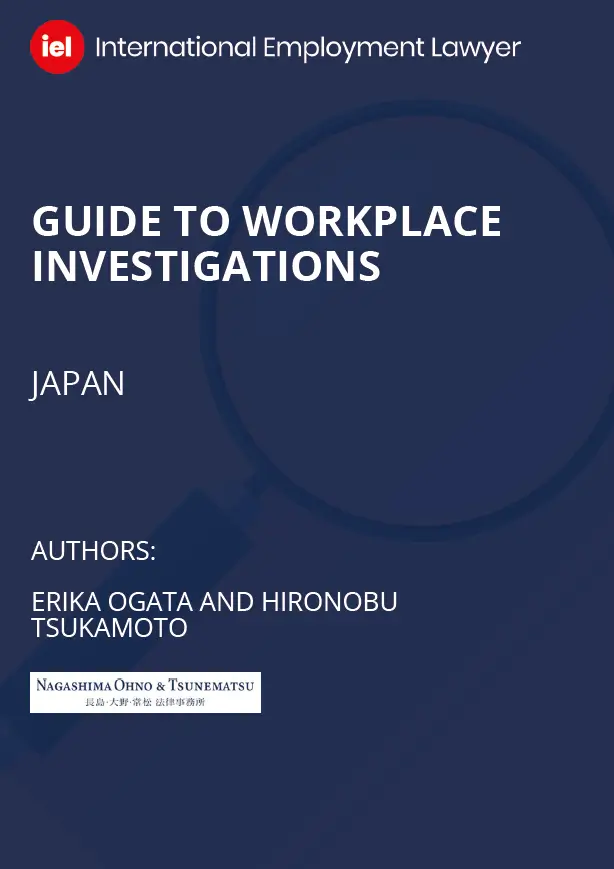
NO&T Compliance Legal Update
This article is also available in Japanese.
Funds purporting to integrate environmental, social and governance (ESG) factors into their investment process have increased in number from 203, in 2017, to 588 in 2022, with a corresponding increase in ESG-related assets from $70 billion to $296 billion.※1 In light of these developments, on March 4, 2021, the SEC announced the formation of a new Climate and ESG taskforce to address instances of so-called “greenwashing,” or the misleading of investors with respect to ESG-related commitments.※2 The SEC has emphasized that the initial focus of the taskforce will be to identify any material gaps or misstatements in issuers’ disclosure of climate risks under existing rules.※3 Within 16 months of its creation, the ESG taskforce brought several enforcement actions against the Brazilian mining corporation Vale S.A., and others. The SEC’s proposed climate- and ESG-related rules are likely to equip the taskforce with a broader range of enforcement tools; prior to these proposed rules, the taskforce was limited to enforcements pursuant to general antifraud regulations and 2010 climate-change disclosure guidelines. The pace of enforcement seems likely to increase after the proposed rules are adopted, provided that these rules survive what seems to be likely legal challenge as to their validity in US courts. Below is a summary of the proposed new rules and recent enforcement examples.
On March 21, 2022, the SEC proposed rule changes with respect to climate-related disclosures and risks.※4 These rules would require, among other things, that registrants make certain climate-related disclosures in registration statements and periodic reports, such as climate-related risks reasonably likely to have a material impact on their business, as well as climate-related financial statement metrics in their audited financial statements. Registrants would also have to disclose their greenhouse gas emissions. These disclosure requirements would include (i) the registrant’s climate-related risk management processes, (ii) the likely impact of climate-related risk on the registrant’s business, (iii) how climate-related risks affect business-model and strategy of the registrant, and (iv) the impact of climate-related events on the registrant’s financial statements, together with the estimates used therein.
Regarding greenhouse gas disclosure requirements, the proposed rules would require disclosures with respect to the registrant’s Scope 1, Scope 2 and Scope 3 emissions, with Scope 1 emissions being direct greenhouse gas emissions, Scope 2 emissions being indirect emissions from purchased energy, e.g. electricity, and Scope 3 emissions being emissions from upstream and downstream activities in the registrant’s value chain. The rules would provide a safe harbor for Scope 3 emissions disclosure (request disclosure if it is decided important by companies or if companies have set targets), together with an exemption for Scope 3 emissions disclosures for smaller companies. The proposed rule change would apply to US 10-K and 20-F forms, and would require disclosure of information as of fiscal year 2023/filing year 2024. The SEC has recently announced, however, that due to the large number of comments the agency has received, these amendments won’t take effect in 2022.※5 This delay may affect the foregoing compliance timeline.
In addition, on May 25, 2022, the SEC proposed certain amendments with respect to ESG factors.※6 These amendments would categorize types of registrant ESG strategies and require disclosures with respect thereto on prospectuses, reports and brochures. The disclosures would include, among other things, an account of the specific ESG-related goals firms are attempting to achieve, and a summary of progress in achieving such goals. The rules would also require ESG reporting on Forms N-CEN and ADV Part 1A, forms pertaining to census-type data.※7 The Form N-CEN amendments, which would add item C.3(j) thereto, would require the disclosing firm to report on (i) the type of ESG strategy it employs, (ii) the ESG factors it considers (E, S or G), and (iii) the method it uses to achieve its ESG strategy. If these amendments are adopted, they will take effect, and subject firms will be required to comply therewith, one year after the date of adoption.
These proposed rules come on the heels, and in the midst of ESG-related enforcements by the new taskforce. The first major enforcement action was brought in April, 2022 against Vale S.A., where SEC charged Vale with violating antifraud and reporting provisions of the federal securities laws to seek civil penalties and others, following the Brumadinho dam collapse in Minas Gerais, Brazil, which killed 270 and released millions of cubic tons of toxic waste into the Paraopeba River region.※8 The SEC alleged that Vale made a series of misrepresentations to investors, including with respect to the risk of liquefaction (saturation and weakening of dam infrastructure by waste), and allegedly included false and misleading statements on its 2016 SEC Forms 6-K and 20-F, in which Vale assured investors that the company adhered to the “strictest international practices” in evaluating dam safety and that 100 percent of its dams were certified to be in stable condition. This lawsuit is still pending.
Following the Vale enforcement, in May, 2022, a US investment advisor BNYMIA (BNY Mellon Investment Adviser) entered into a $1.5 million settlement agreement with the SEC for alleged misstatements regarding ESG considerations. The SEC alleged that BNYMIA violated certain sections of the Investment Advisers Act of 1940 and of the Investment Company Act.※9
BNYMIA had maintained a “Responsible Investment Team” which prepared quality reviews for equities and corporate bonds. This team provided numerical ESG quality review scores for certain reviewed investments. The SEC found that roughly 25% of the fund’s assets did not have an ESG quality review score at the time of investment, despite statements as to comprehensive quality review that the SEC found to be misleading (i.e. that BNYMIA did not always perform the ESG quality review that it claimed to use as part of its investment selection process for certain mutual funds it advised). The SEC also found that BNYMIA lacked written policies to prevent misleading prospectus statements.
Given the number of high-profile enforcements since the establishment of the SEC’s ESG taskforce, it seems reasonable to assume that the pace of enforcement will only increase once the new rule amendments take effect.※10 As noted above, the climate-related disclosures may be required as of fiscal year 2023, though the recently-announced delay may affect this timeline, with ESG-related disclosures to come into effect one year following adoption of the proposed rule amendments. However, these tentative timelines assume that the probably legal challenges to these amendments won’t delay their effective dates, so the timelines may change significantly in the future. Therefore, it is necessary to pay close attention to the SEC’s proposed climate- and ESG-related rules and its movement of enforcement.
*1
https://www.nytimes.com/2022/09/17/business/dealbook/esg-wall-street.html (*for subscribers only)
*8
Securities & Exchange Commission v. Vale S.A.
*10
As of August, 2021, DWS Group, which is the asset-management division of Deutsche Bank AG, has been under investigation by the SEC for alleged misrepresentation of ESG figures. This investigation follows on the termination of DWS’s former head of sustainability, who has claimed that DWS misled investors as to its ESG integration process.
This newsletter is given as general information for reference purposes only and therefore does not constitute our firm’s legal advice. Any opinion stated in this newsletter is a personal view of the author(s) and not our firm’s official view. For any specific matter or legal issue, please do not rely on this newsletter but make sure to consult a legal adviser. We would be delighted to answer your questions, if any.


(April 2025)
Ayumi Fukuhara, Momoko Yamashita, Nina Newcombe (Co-author)


(February 2025)
Yoshihiko Matake, Yuta Sugie, Togo Kitajima (Co-author)


(January 2025)
Hironobu Tsukamoto, Eriko Ogata (Co-author)


Yothin Intaraprasong, Waritpan Titatornwattanasiri, Yanisa Wiboonthan (Co-author)